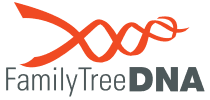Jewish Ashkenazi Genetic Diseases

As genetic research advances, we’re learning more about hereditary diseases and which populations are at a higher risk of having certain disorders.
Ashkenazi Jews, or individuals with an Eastern European descent, are known to be carriers for certain serious genetic disorders.
Certainly, any ethnic group can carry and pass genetic disorders. However, due to specific gene mutations, Ashkenazi Jews are unique in this arena.
Keep reading to learn more about what diseases Ashkenazi Jews may be at risk for, and how genetic screening and DNA testing can help you to take proactive steps toward protecting your health.
Inheriting Ashkenazi Genetic Disease
Inheriting a genetic disease from your parents is possible if you inherit two mutations of the same disease. Everyone receives paired genes where one is received from the father and the other from the mother. To get a recessive inheritance of a genetic disease, both of the genes you inherit must be abnormal.
This means that if both your parents are carriers of the same disease, they can pass on a mutated gene to each of their children. If you inherit a mutation of the same gene from both your parents, you’ll have no protection against that disease.
The severity of the disease and how your body reacts to it can vary from person to person. However, even if you don’t have a reaction, you still carry the gene and may be at risk of passing it on to your children.
Most Common Ashkenazi Genetic Diseases
Research has revealed certain genetic disorders to be more common in groups of Ashkenazi Jews. Carrier frequency, a term used to measure how often a mutated gene appears in a specific population group, is higher for certain diseases within this population.
Five of the most common diseases include:
- Gaucher Disease: This disease is the result of a buildup of certain fatty substances in the liver and spleen. It causes these organs to enlarge and experience reduced function
- Spinal Muscular Atrophy: A neuromuscular disorder that causes muscle weakness and muscle twitching. It also causes issues with swallowing, scoliosis, and joint contractures
- Tay-Sachs Disease: A rare disorder caused by the lack of an enzyme that assists in breaking down fatty substances. It affects the child's brain and functioning of the nerve cells
- Familial Dysautonomia: This is a genetic disorder that disturbs cells in the autonomic nervous system. It affects crucial everyday actions like digestion, breathing, and the regulation of body temperature
- Cystic Fibrosis: This hereditary disease affects the lungs and digestive system causing thick mucus to clog the lungs and pancreas. This disease is usually life-threatening and causes one to die earlier than normal
Genetic diseases can be serious and cause life-threatening problems. DNA testing is an important step to take to understand which mutations you carry and which diseases you and your children may be at risk for.
Genetic Screening
Today, it’s easier than ever to gain important insights into your health and which diseases you may be at risk for. At-home DNA testing kits are a simple, affordable, and painless way to discover more about your DNA. Many of these kits offer genetic screening for specific diseases and population groups.
To complete a DNA test at home, you’ll likely need to give a saliva sample. Read the instructions of your kit carefully to provide a pure and uncontaminated sample. You’ll then return the sample in the provided envelopes that’ll be sent off to the laboratory.
Once the lab receives your sample, they’ll perform an analysis of your DNA. From this analysis, you can learn critical health insights like which diseases you’re at risk for and which mutations you may be at risk for passing on to your children. Some companies also offer a genetic counseling session to assist you in understanding and interpreting your results.
Increasing Awareness
As DNA testing and genetic screening become more common, awareness of hereditary genetic disorders is becoming more commonplace. Among high-risk groups like Ashkenazi Jews, many people are turning to genetic screening before pregnancy to be more informed about their health and their future children.






